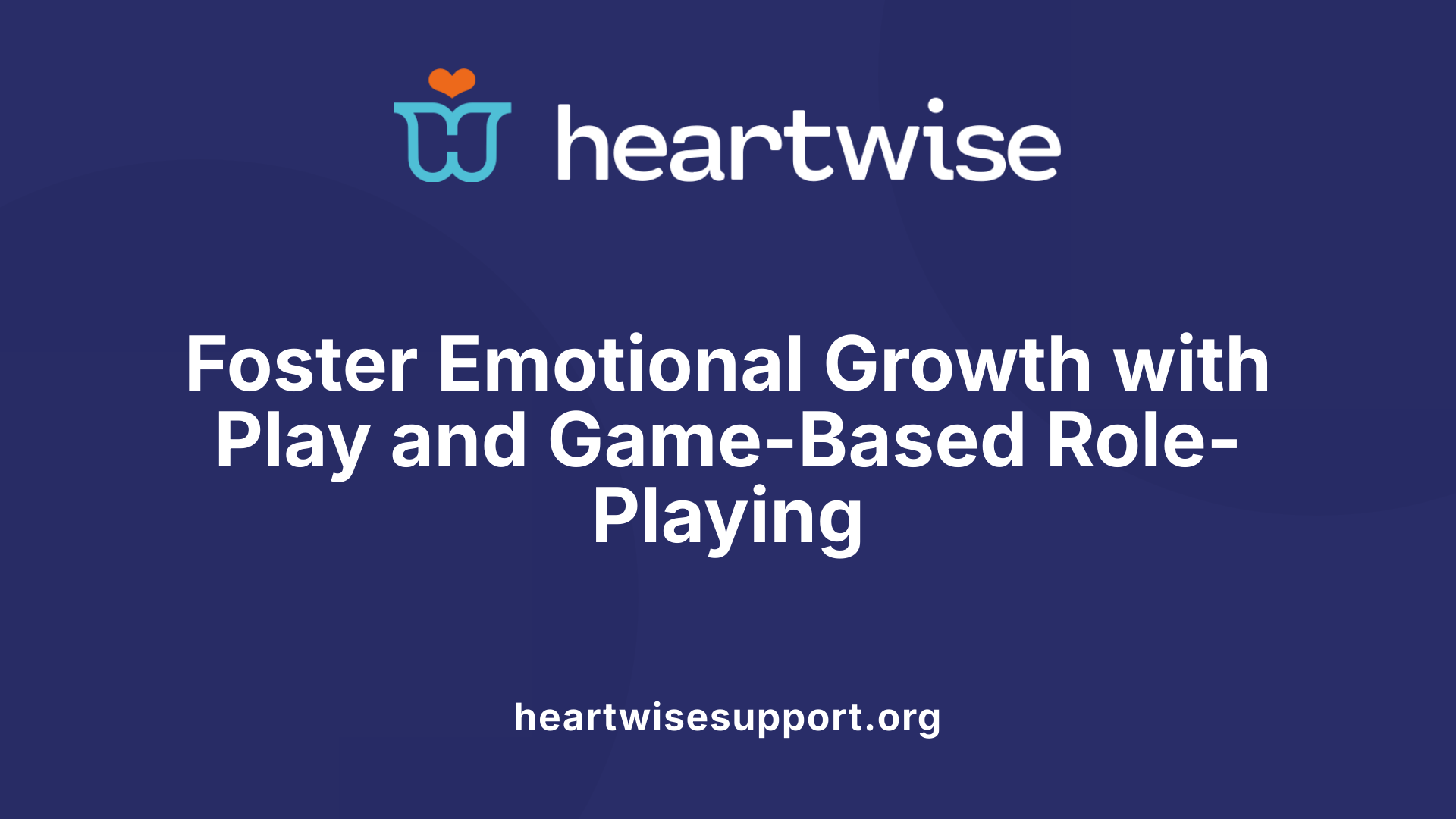Enhancing Social Skills with Role-Playing Techniques
Role-playing techniques are powerful tools in the development of social skills across various settings. Whether in classrooms, therapy sessions, or special programs, these methods foster experiential learning by allowing individuals to practice communication, conflict resolution, and emotional regulation in a safe environment. This article explores the educational benefits, effective strategies, and innovative approaches of using role-playing to enhance social competence, supported by research evidence and practical guidelines.
Educational and Developmental Benefits of Role-Playing for Social Skills Enhancement

What are the educational and developmental benefits of role-playing for social skills enhancement?
Role-playing provides a wide range of benefits that support the growth of social skills in children and adolescents. It encourages creative self-expression, allowing students to explore different ways of acting and communicating in a safe setting. This process helps boost their confidence and sense of achievement as they successfully enact roles and navigate social scenarios.
Furthermore, role-play promotes critical thinking by encouraging participants to consider the consequences of their actions and decisions within the scenario. This reflection helps them develop better decision-making skills in real-life social interactions.
Practicing teamwork and empathy is a core part of structured role-plays. Students learn to share responsibility, listen actively, and understand different perspectives, fostering compassion and perspective-taking.
Role-playing also enhances communication skills, including vocabulary development and emotional regulation. Through active practice, children learn to manage their feelings, respond appropriately, and express themselves clearly.
Creating a supportive environment where children can experiment with social norms without fear of judgment is crucial. This setting facilitates cooperation and resilience, helping learners recover from mistakes and persist in developing their social abilities.
Overall, role-playing acts as a powerful tool that nurtures social competence by aiding children in acquiring the skills necessary for building healthy, respectful relationships and navigating social challenges effectively.
Enhancing Self-Confidence and Social Competence through Role-Playing

How do role-playing activities strengthen self-confidence and social skills?
Role-playing activities are powerful tools that create a secure space for individuals to practice essential social skills. When students participate in these scenarios, they gain opportunities to improve their communication, empathy, and ability to resolve conflicts.
Engaging in role-play allows participants to step into different perspectives, boosting their understanding of others’ feelings and viewpoints. This perspective-taking fosters emotional intelligence, making social interactions more effective and meaningful.
Research shows that, especially in educational contexts, role-playing significantly enhances social competence. It encourages active involvement, teamwork, and problem-solving abilities. By rehearsing responses and strategies in a safe environment, students can build confidence and reduce social anxiety.
Additionally, role-playing helps learners develop emotional resilience. Practicing handling challenging situations, like disagreements or misunderstandings, prepares them for real-world interactions. This process not only improves behavior but also promotes a sense of mastery and self-assurance.
Furthermore, participating in these activities can motivate individuals to collaborate and communicate more openly. As a result, they become more comfortable in social settings, leading to overall growth in confidence and social skills.
In summary, role-playing offers a dynamic and supportive approach to boosting self-confidence. It enhances a variety of skills necessary for successful social interactions and fosters emotional strength—crucial components of social competence.
Techniques and Strategies for Using Role-Playing Effectively

How to select scenarios that target specific skills
Choosing appropriate scenarios is the first step in effective role-playing. These situations should directly relate to the social skills being taught, such as active listening, conflict resolution, or expressing feelings. For example, a classroom activity might simulate a disagreement that students need to resolve diplomatically. Tailoring scenarios to reflect real-world challenges helps students practice relevant skills actively.
Creating a safe and positive environment
A supportive setting encourages participation and reduces anxiety. Teachers should establish clear rules, emphasize that mistakes are part of learning, and foster a climate of respect. Ensuring students feel comfortable to take risks without fear of judgment is essential for meaningful engagement.
Providing clear instructions and establishing rules
Before beginning, explain the purpose of the role-play, outline expectations, and clarify roles. Keeping instructions simple and concise helps students understand what they need to do. Setting rules like listening without interrupting and staying in character promotes order and focus.
Incorporating role reversal and modeling
Role reversal involves students switching roles to see situations from different perspectives, enhancing empathy and understanding. Teachers can model desired behaviors by demonstrating effective communication or conflict management, showing students how to act in real scenarios.
Repeating with varied scenarios and partners
Frequent practice with different settings and partners helps students generalize skills beyond the initial activity. Changing scenarios ensures that learners can adapt their behaviors appropriately across diverse situations.
Using reinforcement, feedback, and self-monitoring
Positive reinforcement, such as praise, encourages continued effort. Providing constructive feedback helps students identify areas for improvement. Encouraging self-monitoring, where students assess their own behaviors, fosters self-awareness and accountability.
Facilitating reflection and debriefing
After each role-play, allocate time for discussion. Ask students what they learned, how they felt, and what they might do differently next time. Reflection helps solidify learning and address misconceptions, making the experience meaningful.
By carefully designing and implementing these techniques, educators can maximize the benefits of role-playing to develop essential social skills effectively.
Using Play-Based and Game-Based Approaches to Foster Social and Emotional Growth

How can role-playing, including play-based therapy and game-based approaches, foster social interactions and emotional growth?
Role-playing, whether through therapeutic activities or engaging game formats like tabletop role-playing games (TRPGs), serves as a powerful avenue for developing social and emotional skills in children. These approaches create a safe, interactive environment where children can freely express their feelings, explore social situations, and practice communication.
Activities such as puppet play, storytelling, and structured games not only make learning fun but also help children build self-awareness and self-regulation. They learn to identify their emotions, understand others' perspectives, and manage reactions effectively. For example, role-playing scenarios involving conflict resolution teach children how to navigate disagreements constructively.
Engaging in role-play activates crucial parts of the brain associated with emotional processing, memory, and executive functions. This neural stimulation supports the development of emotional intelligence, empathy, and social competence. The interactive nature of these activities encourages children to take responsibility for their actions, develop perspective-taking skills, and increase confidence.
Research consistently supports the effectiveness of these play-based strategies. They are not only enjoyable but also evidence-based tools that promote holistic social and emotional development. In summary, role-playing—whether in therapy, classroom, or recreational settings—plays an essential role in fostering children’s social interactions and emotional health, equipping them with foundational skills for lifelong success.
Research Evidence Supporting Role-Playing for Social Skills Development
 Numerous studies reinforce the effectiveness of role-playing in fostering social skills across different age groups. For young children, research reveals that role-playing activities can significantly enhance prosocial behaviors such as sharing, cooperation, and emotional understanding. A systematic review of literature highlights that preschool and elementary-aged children show notable improvements in social communication and emotional regulation after engaging in role-play exercises.
Numerous studies reinforce the effectiveness of role-playing in fostering social skills across different age groups. For young children, research reveals that role-playing activities can significantly enhance prosocial behaviors such as sharing, cooperation, and emotional understanding. A systematic review of literature highlights that preschool and elementary-aged children show notable improvements in social communication and emotional regulation after engaging in role-play exercises.
In adolescence, especially among students with autism spectrum disorder (ASD), role-play interventions like tabletop RPGs have demonstrated promising results. For instance, an eight-week program utilizing the game Guild Chronicles led to measurable gains in social capabilities, including teamwork, self-advocacy, and confidence. These findings were supported by assessments using standardized social skills inventories, which showed statistically significant improvements with p-values of 0.000. Though some online adaptations during pandemic restrictions yielded mixed outcomes, overall, these interventions underline role-playing’s potential to enhance social competence.
Research involving elementary students also reveals that role-playing correlates with increased self-confidence and more positive social interactions. Quantitative analyses in these studies indicate that students participating in structured role-plays exhibit a significant decrease in disruptive behaviors and tattling, alongside better conflict management skills. Across settings, the results consistently demonstrate that role-playing not only promotes social understanding but also boosts learners' confidence in applying skills independently.
In summary, cumulative research emphasizes that role-playing is a valuable educational tool. Its ability to positively influence social behaviors and emotional skills is well-supported, making it a recommended component of social-emotional learning curricula. Future investigations should focus on long-term impacts and the most effective formats for diverse learners.
Supporting Special Populations Through Role-Playing
 Role-playing is a powerful tool for enhancing social skills among special populations, including autistic teens and children with learning disabilities. This method offers a safe, structured environment where individuals can practice important behaviors like making eye contact, assertiveness, active listening, and resolving conflicts. By engaging in role reversal activities, participants can develop empathy and better understand diverse perspectives, which bolsters their social awareness and emotional understanding.
Role-playing is a powerful tool for enhancing social skills among special populations, including autistic teens and children with learning disabilities. This method offers a safe, structured environment where individuals can practice important behaviors like making eye contact, assertiveness, active listening, and resolving conflicts. By engaging in role reversal activities, participants can develop empathy and better understand diverse perspectives, which bolsters their social awareness and emotional understanding.
Incorporating tools such as scripts, prompts, and multimedia, like videos or digital recordings, makes role-playing more engaging and adaptable to individual learning needs. These resources help clarify expected behaviors and provide models for appropriate interactions.
Repeated practice through role-playing helps reinforce these skills and makes it easier for individuals to transfer them to real-world situations. Through consistent application, learners become more confident and comfortable in social settings, reducing anxiety and promoting more positive interactions.
Furthermore, role-playing enables participants to simulate real-life scenarios, improving their ability to manage stress and navigate social complexities. This approach not only strengthens communication skills but also increases emotional resilience and social confidence, which are vital for personal and academic success.
| Population | Technique Focus | Tools Used | Benefits |
|---|---|---|---|
| Autistic teens | Perspective taking, emotion regulation | Scripts, prompts, multimedia videos | Increased empathy, reduced anxiety |
| Children with learning disabilities | Conflict resolution, social understanding | Repetition, real-world practice | Enhanced confidence, conversational skills |
| General applications | Social awareness, communication, stress management | Role reversal, feedback, observation | Improved social competence, emotional control |
In summary, role-playing provides a tailored, engaging, and effective method for supporting social development in learners with diverse needs. By fostering emotional insight, practical skills, and confidence, it helps these individuals succeed socially both inside and outside the classroom.
Maximizing Social Skills Development with Role-Playing
Incorporating role-playing techniques into educational, therapeutic, and social development programs offers a proven pathway to enhance social competence and emotional growth. Through carefully designed scenarios, supportive environments, and reflective practices, learners of all ages—including children, adolescents, and individuals with special needs—can develop essential social skills, improve self-confidence, and foster meaningful social interactions. Continued research and innovative application of role-playing methodologies promise to unlock even greater potential in social skills development, making it an indispensable tool for educators, therapists, and caregivers.
References
- How to Teach Social Skills Through Role-Playing - Region 13's Blog
- [PDF] Using Role Play to Teach Social Emotional Skills in the Early ...
- Role Playing Helps Develop Social Skills - LD OnLine
- Sample strategies for using role-play in social skills instruction
- Social skills training with a tabletop role-playing game, before and ...
- Role Playing | Center for Innovative Teaching and Learning
- The Role of Play in Developing Social Skills - Skill Point Therapy
- Q&A: Can Role-Play Games Help Improve Autistic Teens' Social ...











